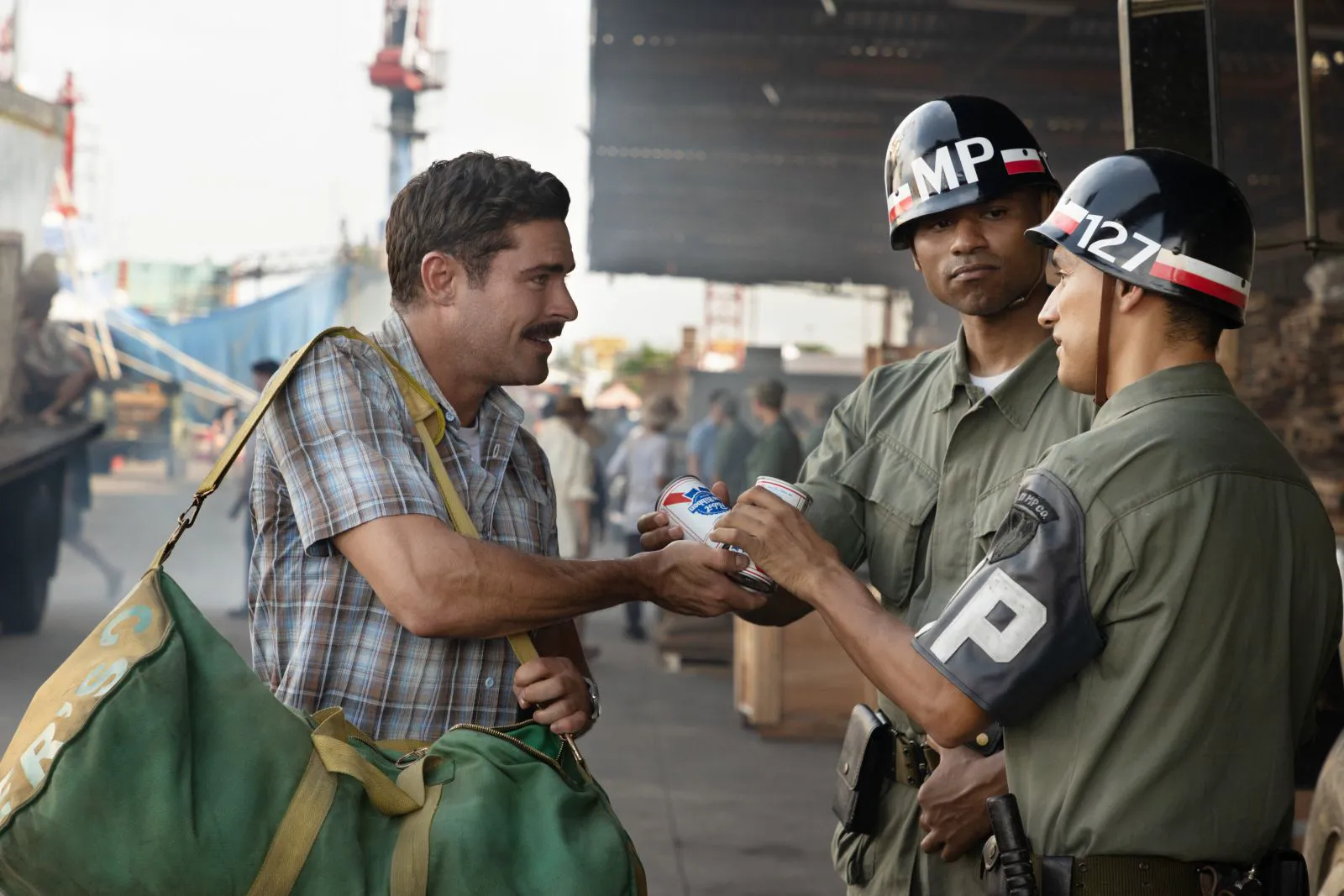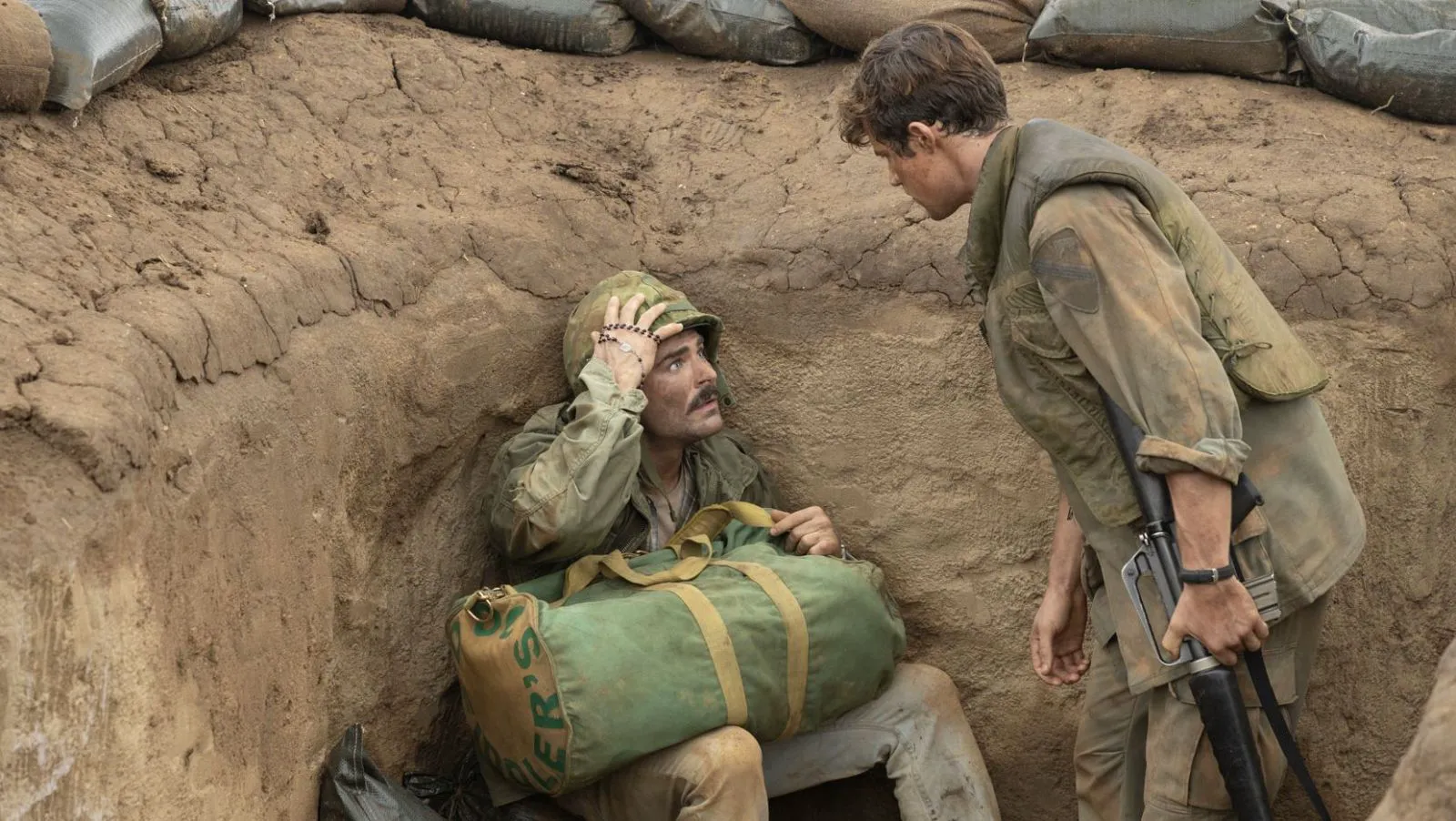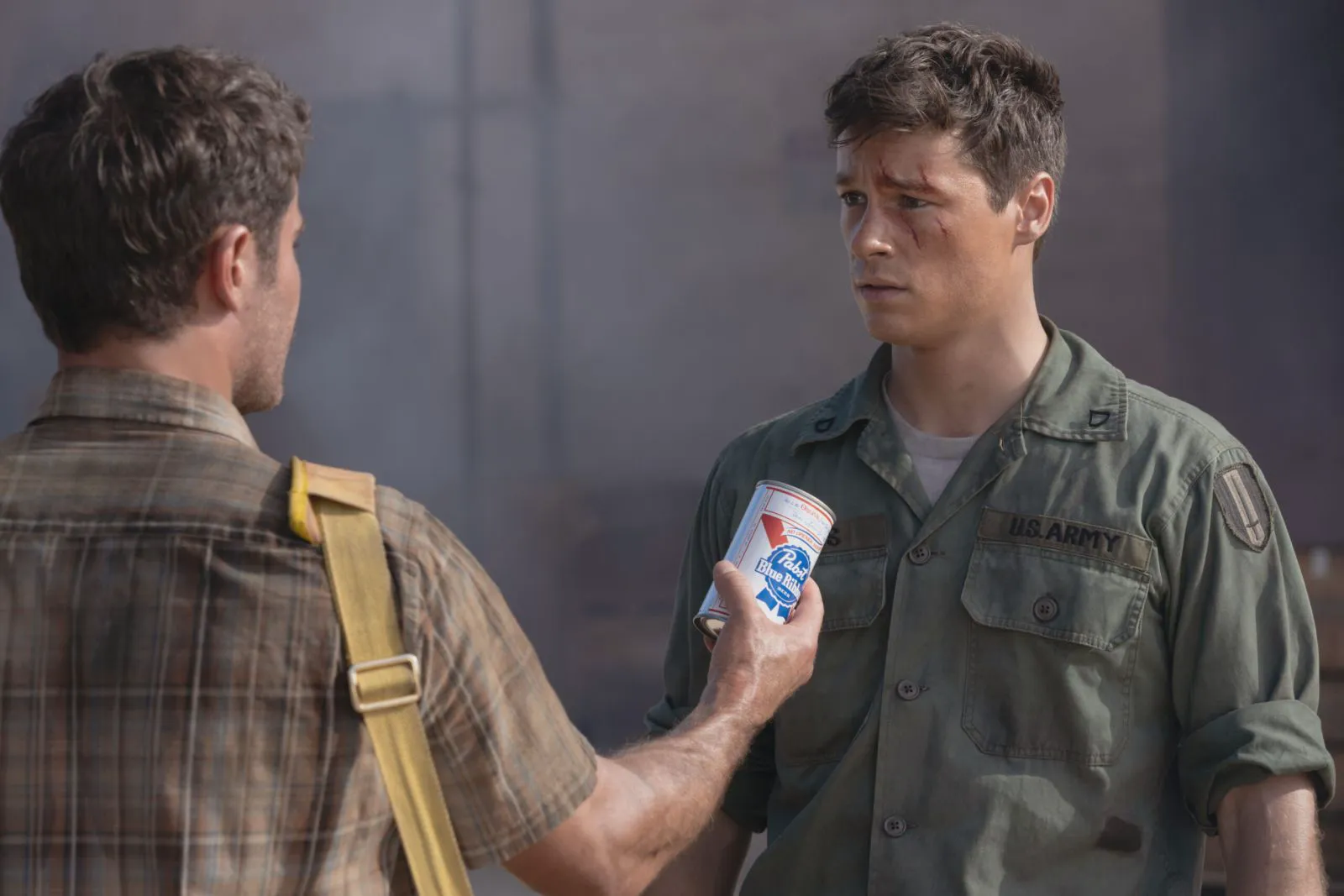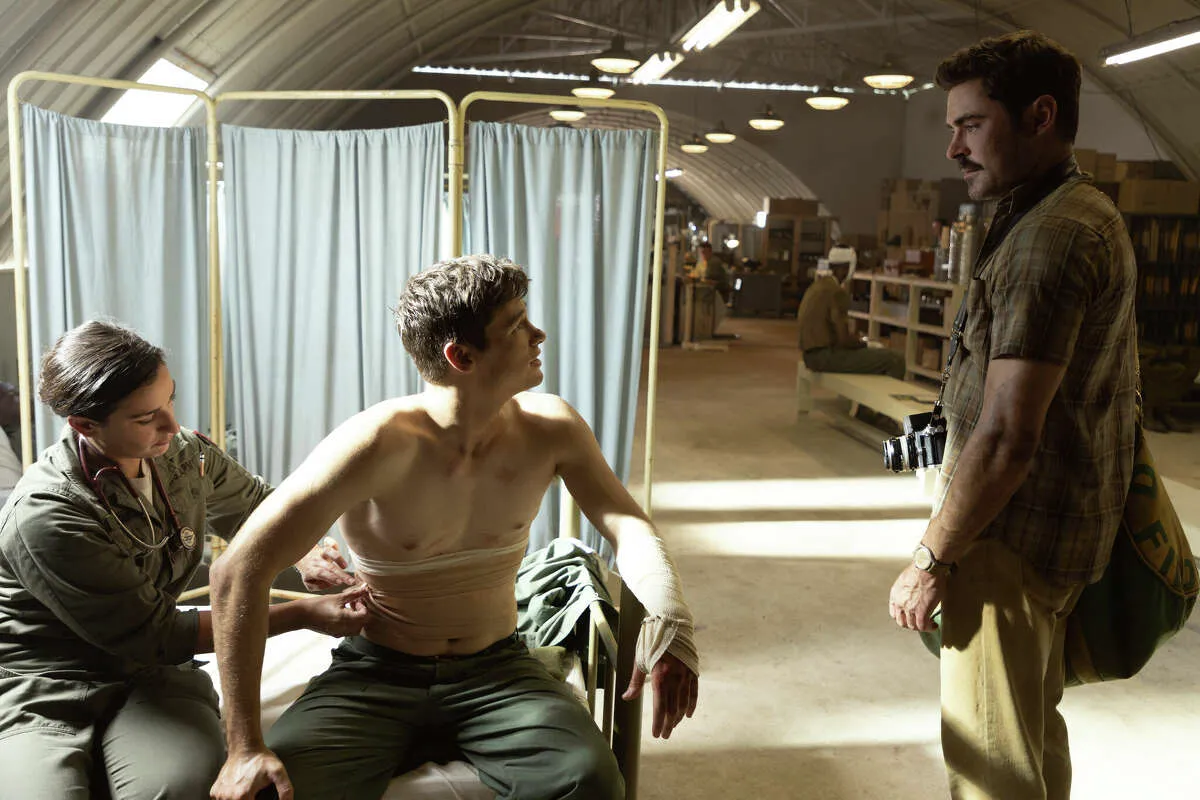In the year 1967, we find Chickie Donohue (played by Zac Efron) residing in a close-knit, neighborly district of New York. The era is marked by significant social upheaval, torn between the anti-war protests against the United States’ involvement in Vietnam and the somber news reaching families about their sons’ deaths in the distant jungles. Chickie, holding more conservative views, believes in the necessity of the war and sees his friends as heroes defending their homeland from “the reds.” Driven by a desire to support the American troops, he embarks on an audacious and somewhat absurd mission: to deliver a bag full of beer to his friends fighting in Vietnam, a gesture of solidarity from their neighborhood.

Zac Efron as Chickie Donohue in “The Greatest Beer Run Ever”
A Familiar Brew?
“The Greatest Beer Run Ever” feels like director Peter Farrelly’s attempt to recapture the magic of his earlier success, “Green Book.” Both films share a similar tone and creative approach, being based on incredible true stories and structured as road movies where a protagonist with outdated views encounters challenging situations. Both narratives aim for reconciliation, with the protagonists undergoing transformations and shedding their harmful misconceptions. However, while “Green Book” garnered three Academy Awards, including Best Picture, “The Greatest Beer Run Ever” has faced harsh criticism and has little chance of awards recognition.
The issue isn’t necessarily that Farrelly’s new film is significantly inferior. While it may lack the seamlessness of “Green Book,” which felt like one continuous journey, “The Greatest Beer Run Ever” comes across as a series of sad and amusing anecdotes. The core problem lies in the characters. In “Green Book,” the protagonists engaged in mutual therapy, connecting the disparate episodes. Chickie Donohue, on the other hand, largely keeps his thoughts to himself, communicating silently with the audience. Only towards the end does he find a mentor figure in a stern journalist, portrayed by Russell Crowe.

Zac Efron as Chickie Donohue in “The Greatest Beer Run Ever”
Missed Timing
In many ways, it’s the same formula, but with a different flavor. The difference in critical reception likely stems from a misalignment with the current context. “Green Book” resonated during a period of heightened racial tensions, while “The Greatest Beer Run Ever,” an anti-militarist film, was released after the US withdrawal from Afghanistan. Farrelly’s attempt to tap into raw societal wounds simply didn’t land as effectively this time.

Zac Efron as Chickie Donohue in “The Greatest Beer Run Ever”
Universal Themes
Instead, the director has crafted a universally relevant film, with characters and situations that resonate across geographical boundaries. A family dinner scene features Donohue’s father arguing with his sister about the futility of protests and the government’s superior knowledge. Chickie himself is apolitical, guided by tired patriotic ideals and a lack of independent thought. He’s neither a militarist nor a fan of hippies. His absurd journey isn’t so much an act of patriotism as an attempt to justify his own inertia, which contributed to the death of a friend.

Zac Efron as Chickie Donohue in “The Greatest Beer Run Ever”
A Simple Message
Even after witnessing the horrors of war, Chickie initially clings to his centrist stance, criticizing journalists for spreading fear. “The Greatest Beer Run Ever” is primarily a compelling portrayal of an average person forced to re-evaluate long-held beliefs. Politicians can lie, and the truth can be painful. This message has been conveyed in numerous other outstanding films, most recently Peter Jackson’s documentary “They Shall Not Grow Old.” However, the strength of “The Greatest Beer Run Ever” lies not in its originality but in its accessible cinematic language. Farrelly, a truly “people’s” director, conveys his message in a way that resonates even with those who rarely watch movies, using simple metaphors and, at times, blatant manipulation (including a scene with a CIA execution and a Vietnamese child crying at the sight of Chickie). Ultimately, the moral is delivered by well-known Hollywood actors like Russell Crowe and a mustachioed Zac Efron, who reveals new depths in his dramatic and comedic abilities.
Sometimes, it seems important to voice even the most obvious thoughts in cinema. A naive morality tale can be valuable if made with the disarming kindness and sensitivity that Farrelly possesses. After all, not every filmmaker can be so genuinely optimistic – a quality that is sorely needed today.